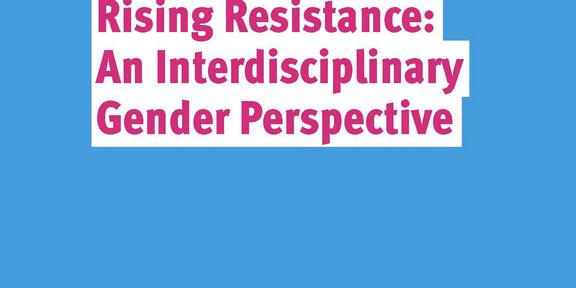New Publication: »Violent Times, Rising Resistance: An Interdisciplinary Gender Perspective«

The peer-reviewed volume Violent Times, Rising Resistance: An Interdisciplinary Gender Perspective has been published with Seismo Press and is available Open Access. Dominique Grisard (Swiss Center for Social Research, Zürich), Annelise Erismann (Gender Center of the University of Lausanne), and Janine Dahinden (University of Neuchâtel) edited the volume.
Violence is a persistent element of modern history and it always has been gendered. Today’s violent times have politicized and mobilized new publics, generated creative forms of resistance, incited the most unlikely coalitions, and emboldened to live life differently.
The systemic use of rape as a strategy in war fare, nationalism, and settler colonialism, the persistency of intimate partner violence, and the increasingly open racist, sexist, transphobic, and homophobic discrimination are just a few examples of violence’s omnipresent gender dimension. The contributions of this volume analyse violence and multiple forms of resistance from an interdisciplinary gender perspective. They show that violence is not just a central and powerful structuring principle of gender, sexuality, ethnicity, race, and class, but that it is also part of the fabric of nation states and structures all social relations. In addition, the contributions depict manifold strategies and tactics of confronting gendered violence.
While trans* people in the US-American context are vulnerable to different kinds of violence, in her contribution "The Sensuous Politics of Singing in a Trans* Chorus," Patch rather starts from a joyful endeavor, collective singing, to find out what the sensuous knowledge in singing as a member of a trans* chorus exposes both about the social contingency of embodied, lived experience and the agency of trans* vocal expression. Drawing on ethnographic data consisting of in-depth interviews with members of the Trans Chorus of Los Angeles and observations of their chorus rehearsals, Patch argues that trans* choral singing transforms the worlds of its singers, countering the sensuous problem cisheteronormativity poses to living well and comfortably. The collective practice of singing contributes to flourishing by offering normalizing plurality (being one among many trans* singers), a sense of rooted place in addition to safe space (the root being the singing and bonds created through singing and having potluck meals together), the healing touch of the intercorporeality (of singing itself and through performance practices of holding and hugging), and finally, catharsis in the face of existential stresses, such as dealing with legal name changes, transmisogyny at the workplace, street harassment, and interpersonal crisis at the ‘home front’.


![[Translate to English:] [Translate to English:]](/storages/ge-sowi/_processed_/9/7/csm_GE_Icons_pattern-01_c382a06826.jpg)